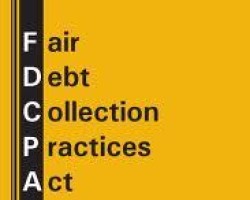
UNITED STATES COURT OF APPEALS
FOR THE SIXTH CIRCUIT
_________________
LAWRENCE R. GLAZER,
Plaintiff-Appellant,
v.
CHASE HOME FINANCE LLC; CINDY A.
SMITH; REIMER, ARNOVITZ, CHERNEK &
JEFFREY CO., L.P.A.; RONALD CHERNEK;
and DARRYL E. GORMLEY,
Defendants-Appellees.
No. 10-3416
Appeal from the United States District Court
for the Northern District of Ohio at Cleveland.
No. 09-01262—Christopher A. Boyko, District Judge.
Argued: March 8, 2012
Decided and Filed: January 14, 2013
Before: GRIFFIN and KETHLEDGE, Circuit Judges; and THAPAR, District Judge.*
_________________
OPINION
_________________
GRIFFIN, Circuit Judge. This action involves claims under the Fair Debt
Collection Practices Act (“FDCPA” or the “Act”), 15 U.S.C. § 1692, and Ohio law that
plaintiff Lawrence Glazer asserts against a mortgage servicing company and the lawyers
it hired to foreclose on property Glazer inherited. The district court dismissed the
federal claims under Federal Rule of Civil Procedure 12(b)(6) and declined to exercise
jurisdiction over the state-law claims. For the reasons that follow, we affirm in part and
reverse in part. In doing so, we hold that mortgage foreclosure is debt collection under
the Act.
I.
In August 2003, non-party Charles Klie purchased property in Upper Arlington,
Ohio. He obtained financing for the purchase from non-party Coldwell Banker
Mortgage Corporation (“Coldwell Banker”) and gave Coldwell Banker a mortgage on
the property. Coldwell Banker promptly assigned its ownership rights in Klie’s note and
mortgage to the Federal National Mortgage Corporation (“Fannie Mae”) but continued
to service the loan. For reasons unknown, this assignment was never publicly recorded.
Four years later, in October 2007, Coldwell Banker transferred its servicing
rights to non-party JP Morgan Chase Bank (“JP Morgan”). This transaction did not
transfer any ownership rights in the note and mortgage (Coldwell Banker had none to
give). But in order to sell its servicing rights, Coldwell Banker had to assign whatever
rights it had in the note and mortgage (which were none) to JP Morgan, who then
reassigned the rights to Fannie Mae. On November 1, 2007, defendant Chase Home
Finance LLC (“Chase”), an arm of JP Morgan, obtained servicing rights to the Klie loan,
which was current at the time. Chase began to service the loan and accepted timely
payments for November and December of 2007 and January of 2008.
Klie died on January 31, 2008. By the middle of May 2008, the loan was in
default. Chase hired defendant Reimer, Arnovitz, Chernek & Jeffrey Co., LPA, and two
of its attorneys (“RACJ”) to foreclose on the Klie property. On June 2, 2008, RACJ
prepared an assignment of the note and mortgage on behalf of JP Morgan that purported
to “sell, convey and transfer all rights and interests in the Klie promissory note and the
mortgage . . . to Chase” in order to establish Chase’s right to foreclose. According to
Glazer, the assignment transferred absolutely no rights because Fannie Mae still owned
the note and mortgage by virtue of Coldwell Banker’s assignment shortly after
origination.1
In June 2008, RACJ filed a foreclosure action on Chase’s behalf in state court,
alleging that Chase held and owned the Klie promissory note and that the original note
had been lost or destroyed. According to Glazer, Chase and RACJ fraudulently
concealed the fact that Fannie Mae owned the loan, and that the original note was not
lost or destroyed and was being held by a custodian for Fannie Mae’s benefit. The
complaint named plaintiff Lawrence Glazer as someone possibly having an interest in
the Klie property, and RACJ served Glazer with process. Glazer answered and asserted
defenses. He also notified RACJ that he disputed the debt and requested verification.
RACJ refused to verify the amount of the debt or its true owner.
In July 2008, the probate court handling Klie’s estate transferred all rights in the
property to Glazer as a beneficiary under Klie’s will. RACJ filed an amended
foreclosure complaint and again represented that Chase owned the note. Litigation
continued, and RACJ eventually moved for summary judgment, representing once again
that Chase owned the Klie note. The court granted the motion and entered a decree of
foreclosure. It later vacated that ruling and demanded that RACJ produce the original
note for inspection. Despite the vacatur of the foreclosure decree, RACJ scheduled a
sheriff’s sale but later cancelled it. Chase later dismissed the foreclosure action without
prejudice.
[…]
© 2010-19 FORECLOSURE FRAUD | by DinSFLA. All rights reserved.




Freddie and Fannie have a policy of note allowing any notes to be sent to them. So how can Fannie and Freddie claim ownership? They are as much a scam as the rest of this sham! http://propertydefensenetwork.com/blog/2012/07/
Wow, this article is good. I’ll check your blog every now and then. -Key Realty